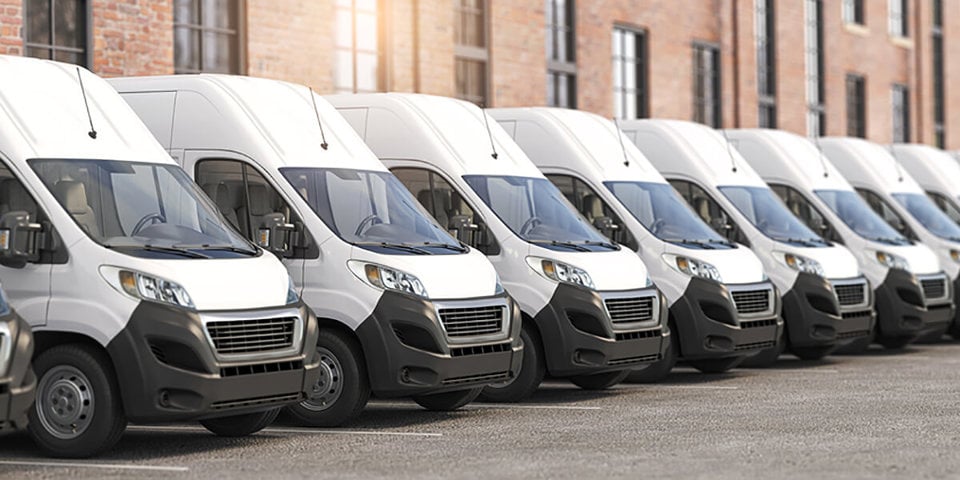Ask the public or the media for their view of ‘white van man’ and their response is predictable - blasts of indignation about aggressive driving and lack of road manners.
While the perception is much worst than reality, a new Code of Excellence is looking to address this and a host of other issues to do with running a fleet of vans.
Van Excellence, conceived by the Freight Transport Association (FTA) but shaped and driven by its van fleet members, is intended to bring the professionalism of the heavy goods sector, governed by the Operator’s Licence and CPC, to 3.5-tonne vehicles.
As founding member Rory Morgan, national logistics general manager at Iron Mountain, puts it: “The view is that we should migrate what we do with heavy goods to the van drivers.”
Officially launched at the Fleet Van conference in September, 65 companies, running 150,000 vans, have already registered interest.
Seven attended a briefing set up by FTA for Fleet News to explain why they were involved and what they hoped Van Excellence would achieve.
Mike Revell, group director of transport at Clancy Group, underlined the concerns of many when he highlighted the lack of defined legislation regarding health and safety.
“We have strict maintenance programmes in place for our vans but for many the only checks they have are when the vehicle has its MOT,” he says. “The code is about educating companies to increase their awareness and improve standards.”
Van Excellence has two streams: vehicle-related undertakings (roadworthiness, safety, working environment, standards) and driver-related undertakings (licensing, behaviour, compliance, competence and training).
Members of Van Excellence anticipate a number of cost benefits. In addition to better maintained vehicles and safer drivers, they expect to reduce accidents, lower their insurance premiums, reduce fuel consumption and achieve higher re-sale values.
They also point out that the code offers positive PR (the Van Excellence ‘tick’ will be displayed on the back of vans) which could lead to business wins.
“In our tender documents we are being asked about road accidents – we could use the code as part of this,” says Revell.
Julie Davis, Amey compliance manager - logistics, adds: “We have to see van drivers as professional drivers. It is as much a part of their job as the actual job they are employed to do.”
Debbie Vaughan, transport compliance manager at Enterprise, agrees. “This gives a framework to work from before drivers get into the vehicle. Gone are the days when companies just asked to see a driving licence and that was it.”
Bigger fleets could play a significant role in ensuring the code is implemented by smaller van operators, countering a concern that Van Excellence will only appeal to the larger, more professionally-run companies.
“We can force their hand,” says Revell. “It is up to the companies who adopt the code to insist that their suppliers and contractors sign up as well.”
FTA project manager Mark Cartwright says well maintained vans that have not been overloaded or subject to harsh driving will attract enhanced residual values. “That’s the view of the auction houses,” he adds.
The opportunity to raise re-sell values has not gone unnoticed by the leasing sector which, according to Cartwright, is keen to get involved.
It’s not the only sector: manufacturers, rental firms, insurers, equipment suppliers and dealers are all possible partners as Van Excellence develops and expands.
Van Excellence also pre-empts any move by UK Government and the European Parliament to introduce stiffer legislation, which would add cost and administration time. FTA recently met with transport minister Mike Penning and says Van Excellence was well received as a positive initiative for the industry.
“If we don’t do it ourselves, legislation will come in and we will be forced to do it,” says Richard Cook, fleet director at DHL. “This way we have control over the process in defining the model.”
With an annual fee of £495, covering the admin and half-day audit, Wakefield Housing Association fleet manager Rick Young put the case best: “You don’t have to throw millions of pounds at this – it’s all achievable.”
Van Excellence – the process
Half-day audits are expected to begin within the next month or so, with the first companies likely to be granted Van Excellence status before the end of the year.
Mark Cartwright hopes to have 200-300 signed up within the next 12 months. Of the 65 companies that have already registered interest, at least 15 have fewer than 10 vans.
Audits will be carried out by FTA staff who have been instructed to assess and interpret the appropriateness of processes and standards within each fleet operator.
“There will be differences between individual operators in different industry sectors – it’s about what’s appropriate for each business,” says Cartwright.
He adds: “The difference with this code is that it is being driven by the van operators themselves. All we are doing is facilitating and managing the process – they are the governance.”
More details can be found at www/fleetnews.co.uk/van-excellence/

















Login to comment
Comments
No comments have been made yet.